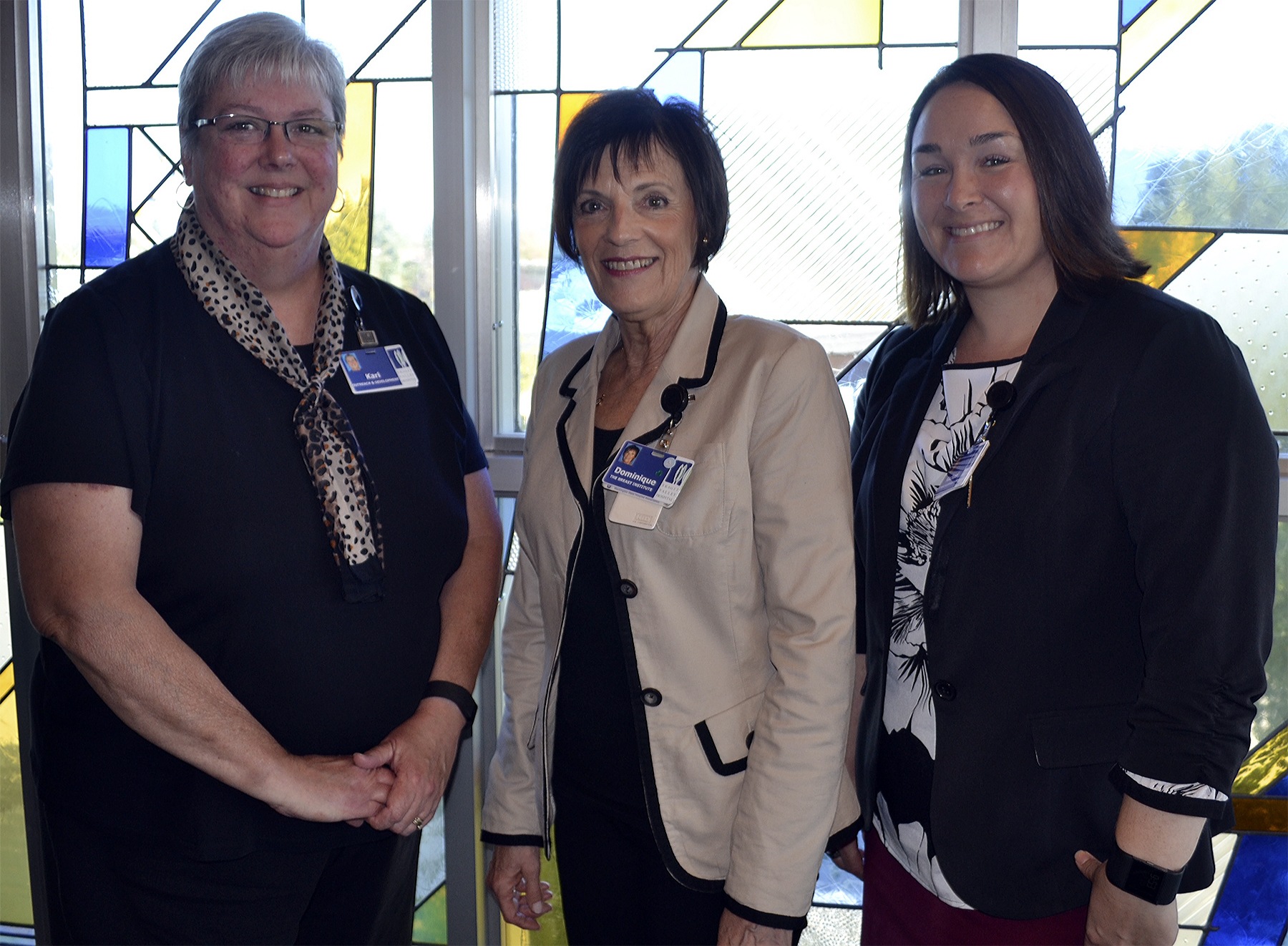ARLINGTON – There’s no GPS system to help cancer patients navigate their way through the maze of medical procedures they need.
But at Skagit Regional Health’s Breast Institute there is a patient navigator.
Dominique Dailly developed the program in 2009.
Skagit Regional Health took over Cascade Valley Hospital in Arlington this summer. While the Breast Institute is not here yet, Dailly said she expects it to be part of CVH in a year or so.
Other cancer services are available locally.
Women can go to CVH for mammograms. In October, for Breast Cancer Awareness Month, mammograms will be available at the hospital until 8 p.m. on Wednesdays, even without a referral.
People can find primary care doctors locally to find out if they do have cancer. They can even have surgery done at CVH to remove some cancerous tumors.
At Skagit Regional Health’s clinic at Smokey Point, patients can even have chemotherapy treatment.
But by driving north to Mount Vernon, rather than south where the traffic gets so bad, cancer patients can get holistic treatment at Skagit Valley Hospital, Dailly said.
There, a patient navigator helps people set up all of their appointments. That includes everything from tests such as biopsies to treatment and even includes financial, family, psychiatric and interpreter consultations.
“We follow the patient from diagnosis to the end of treatment, helping with barriers,” Dailly said.
Also, the doctors of all the disciplines meet in a “cancer conference” to continually determine the best route for the treatment to go.
Involved are: medical oncology, surgery, radiation oncology, pathology, radiology and breast reconstruction.
“It’s not the decision of one doctor,” she said.
For example, chemotherapy may work better on a tumor than expected, to the point the patient no longer would need a mastectomy, which had previously been planned. A less-aggressive surgery, such as a lumpectomy, could be all that is needed, Dailly said.
“What a difference,” she said.
Dailly explained that this process gives patients more choices.
Such as, a patient may not want radiation. The team of doctors can decide what else could be done.
“She may need only surgery, chemo or all three,” Dailly said.
She said patients love the navigator system.
“To try to do it on your own would take weeks and weeks,” Dailly said. “This way you’re on everybody’s radar.”
Kari Ranten, director of marketing and communications at Skagit, said the patient navigator system was accredited after only two years, which is rare in the medical field.
“Everything was in place,” she said. “They get treatment much sooner and more efficiently.”
Ranten said there are a lot of dynamics for people to deal with when they learn they have cancer.
“They are shocked, paralyzed. You need help,” she said.
Dailly said the idea for a navigator actually came out of New York’s Harlem in about 2000 when a woman came to a doctor with Stage 4 cancer. That started a program where those who lacked education and faced social barriers could get help from a social worker to take care of them through the process.
Dailly said when she first started the navigator program, she had about 80 people the first year. Now there are about 200 a year.
“Navigators are used a lot now,” Ranten said, “because of the complexity of health care.”
Another positive part of Skagit’s cancer program is that it is in a network with Seattle’s Cancer Care Alliance, a leader in the field nationally.
“They are on the leading edge of cancer” research and treatment, Ranten said. “If you need a procedure you can go there and return home for the rest of your care, which makes it more convenient.”
Many patients don’t go to Seattle at all.
“You don’t have to go to Seattle for everything,” Ranten said. “You have a strong program right in your community.”
Dailly added, “You can get the same care close to home.”
And Rachael Woods, marketing and communications program manager, said, “You’re not just a number. You can have that type of program by just zipping up north on the freeway. It’s so much easier.”
Dailly said the doctors are top-notch.
“By their very nature as physicians” they keep up with the best and newest treatments, such as oral chemotherapy, she said. “There are new drugs all the time and our doctors are on top of it.”
The radiation clinic, which is about 10-years-old, recently had a $3 million upgrade.
“You have to hold very still, but it’s very brief,” Dailly said. “It takes longer to undress and dress than” it does to do the procedure.
If patients have to stay overnight, the Sunrise Inn is nearby, which is kind of like a Ronald McDonald House, very inexpensive.
Dailly said the American Cancer Society has changed its recommendations on self-checks and mammograms. Self exams are not recommended because of the possibility of misdiagnosis.
Also, insurances don’t like to pay for mammograms unless the patient has a greater risk than the average woman, such as if it runs in the family. But some women still have them for peace of mind.
“The doctors decide, but you have to advocate for yourself,” Dailly said.



